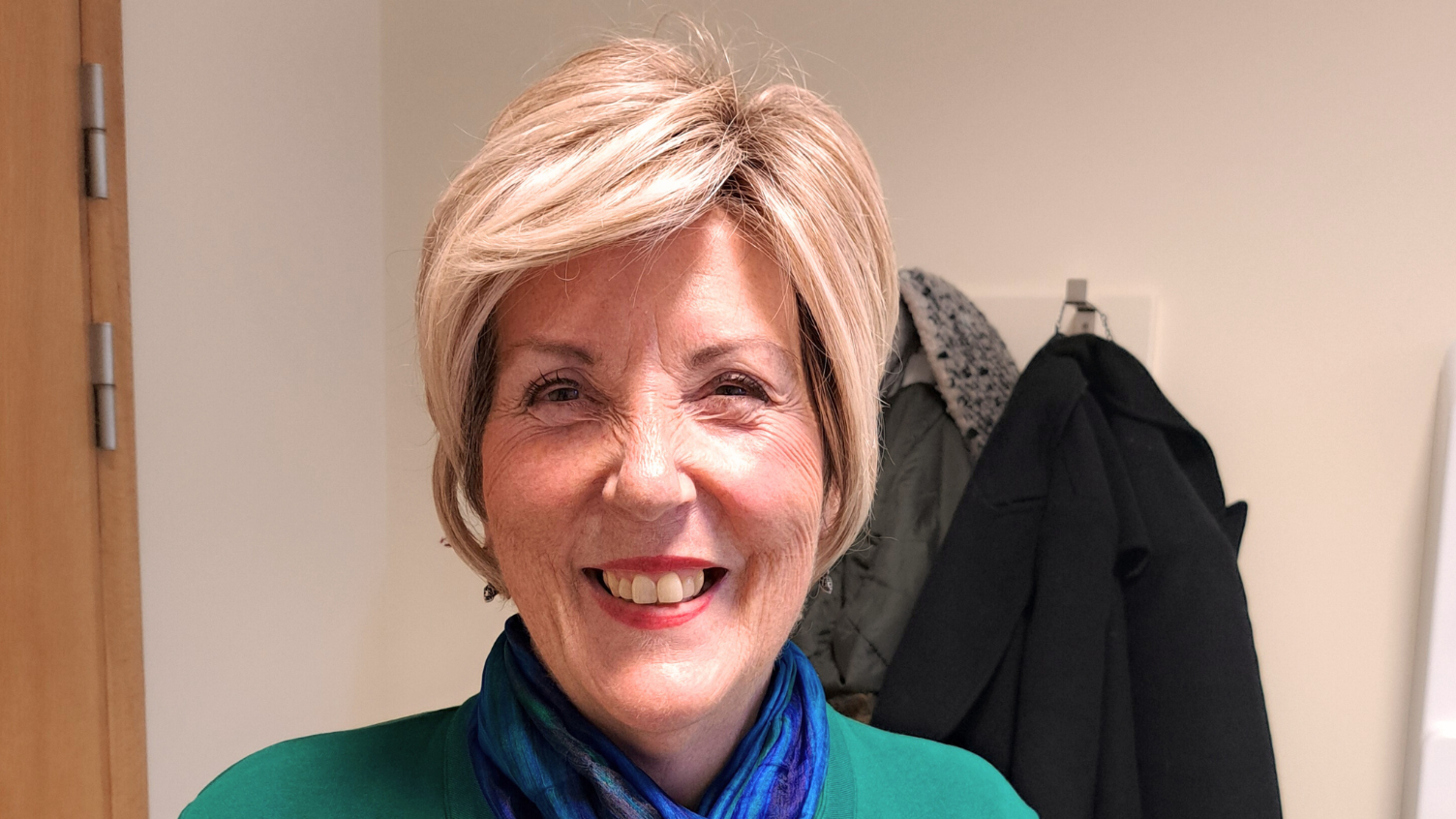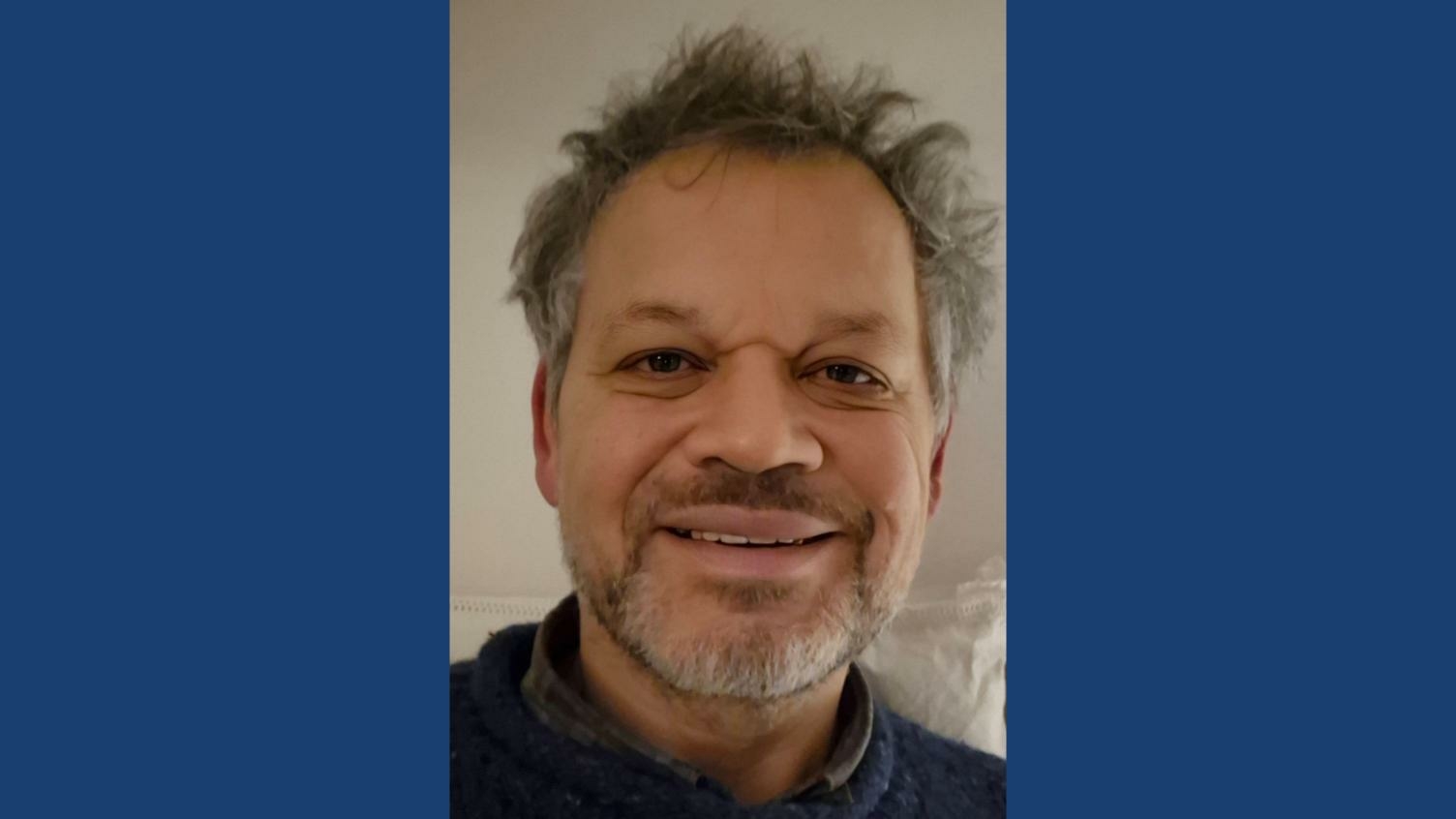Ophthalmologist and researcher Manju Chandran talks about her motivations, inspirations and her path into research
- 8 July 2021
- 4 min read
Manju has received NIHR Clinical Research Network Kent, Surrey and Sussex Greenshoots funding – dedicated funds to support healthcare professionals to become principal investigators – for her project investigating how artificial intelligence can help reduce hospital waiting times by screening and diagnosing people with a common eye condition called diabetic retinopathy.
In Your Path to Research - a series that uncovers the research community across the National Institute for Health Research Clinical Research Network Kent, Surrey and Sussex region - ophthalmologist and researcher Manju Chandran talks about her motivations, inspirations and her path into research.
Tell us about your current role?
I'm a consultant ophthalmologist and Lead Consultant for the Ophthalmology Department at Frimley Health NHS Foundation Trust, so my days are mostly filled with surgery and patient consultations. I'm also actively involved in research as a sub investigator and a principal investigator.
What research project are you working on at the moment?
I'm a medical retina specialist and my current project involves new treatments for macular degeneration, which is essentially wear and tear in the macular section of the eye. The macular allows us to see straight ahead, for example to look at faces or read a book, if it degenerates too much it can cause blindness.
There are two types of macular degeneration - wet and dry. Our project is looking at wet macular degeneration, which is the least common type that is more likely to cause a sudden change in vision and is characterised by blood vessels that grow under the retina and leak.
Currently, macular degeneration patients are given injections in the eye every four to eight weeks. We are investigating a new treatment that could reduce the frequency of injections.
What is your upcoming NIHR Greenshoots-supported project about?
We are investigating whether artificial intelligence can be used in hospitals to screen and diagnose patients who have been referred from community settings for diabetic retinopathy. This is a common condition that affects one in three people with diabetes and, if left untreated, can lead to blindness. Early diagnosis and treatment is the best way to prevent it.
However, ophthalmology departments are really busy and capacity issues can cause appointment delays. For example, ophthalmology appointments at Frimley account for around 10 per cent of all hospital appointments. But if we can develop a computer program that screens and diagnoses as effectively as an ophthalmologist then we can see more patients sooner and get them on a treatment programme more quickly.
The project aims to recruit between 1,000 and 1,500 participants at Frimley over a 12-18 month period. Participants' clinical details will be uploaded onto a database and shared with Singapore Eye Centre to inform the AI program. We hope that the introduction of an AI program will reduce face-to-face appointments by 30 per cent in the long run, enabling us to diagnose and treat patients sooner.
What were you doing before you were a researcher?
I was a practising ophthalmologist, but I have always had a keen interest in research. In 2007, I decided to take the plunge and got a job as a research fellow at Frimley. It changed my life!
What inspired you to become a researcher?
I was inspired to become a researcher by a long-standing interest in research and its ability to advance patient care. I was lucky to find an inspirational mentor, Professor Geeta Menon, who gave me a great footing and the drive to do more. I was able to become a sub investigator and principal investigator for a number of trials.
I wanted to help other clinicians in the organisation to access research as a career choice for both their own and their patients' benefit. So, after working in research for 10 years, I did a two-year stint as Director for Research.
What do you enjoy most about research?
“I really enjoy achieving results that improve patient care. Once you have found a new drug or another type of breakthrough that is going to improve the sight of the patient, well, that is just the best feeling.”
What have you found the biggest challenge?
For me, it was the first two years. I found these incredibly challenging because I was a total novice in the field of research and learning the ropes. In hindsight, I can see I needed more support and protected research time. The landscape of the department changed in my third year - research flourished and so did I!
What are your career ambitions?
At Frimley we do lots of multi-centre sponsored trials, which is fantastic, but I would like to see the trust do more home-grown studies and I would like to be a part of making this happen.
What are your interests outside of work?
Outside of my clinical roles, I enjoy being a college tutor. In my personal time, I love listening to music, gardening (even before lockdown!) and playing badminton.
What advice would you give to others considering a career in research?
If you are in your training years, do research as part of your training and find a good mentor.
Most importantly, whatever career stage you are at, believe in yourself. Lots of people think they are not capable of research, but if you have the eagerness to do research - and a supporting department and trust - you can do anything. And research is the way forward to advance patient care.


